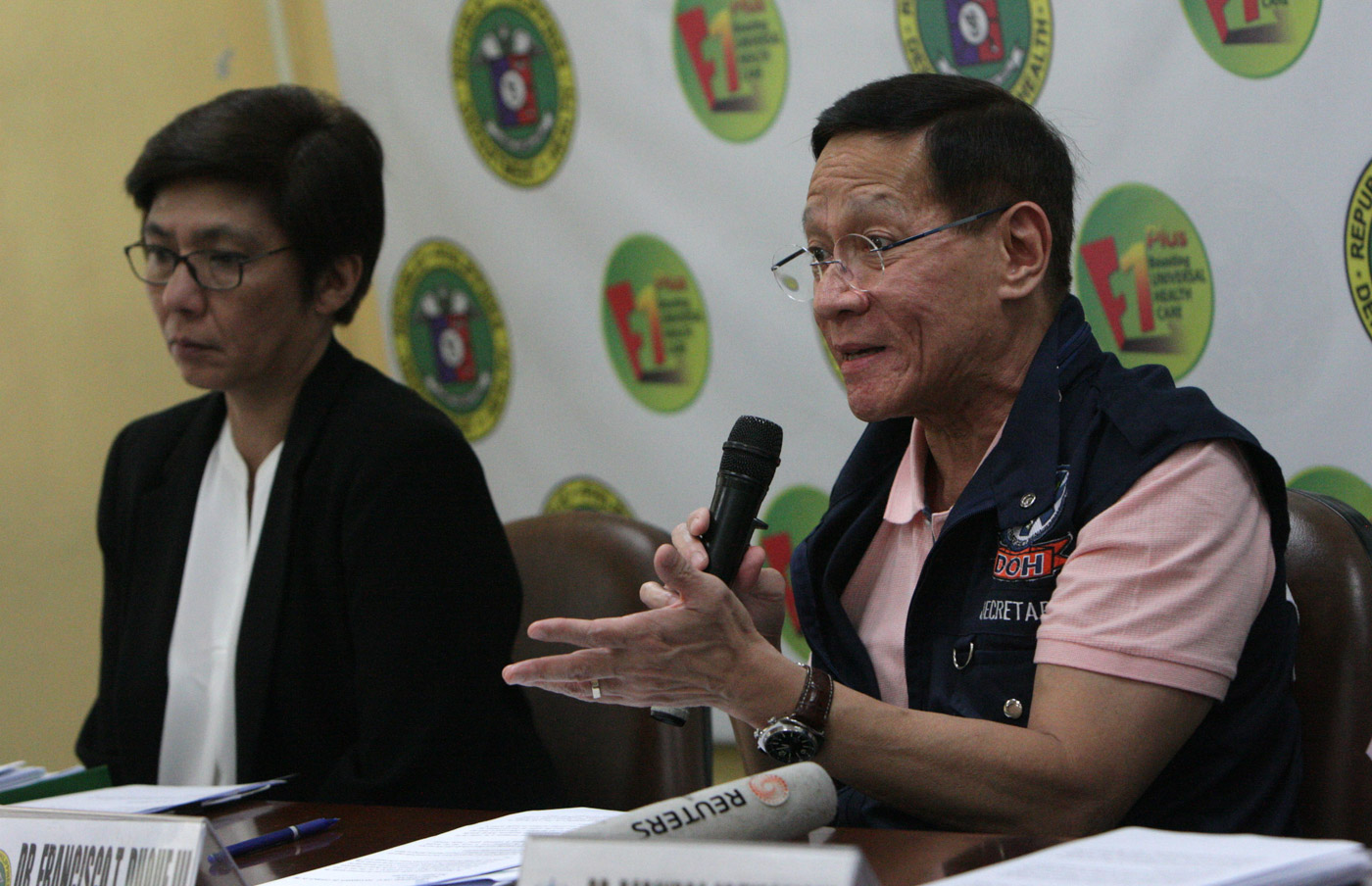
MANILA, Philippines – Reacting to the report on the "alarming" data errors, Department of Health (DOH) Secretary Francisco Duque III said that the issues were just less than 1% of the whole dataset and "does not prejudice the overall interpretation of data and decision-making."
During the televised briefing on Wednesday, May 13, Duque said that they have corrected these issues such as "inconsistencies in the formating of the date, case classification and proper identification of the location."
He added: "the DOH remains committed to transparency, and we welcome feedback from expert community."
Duque thanked the University of the Philippines (UP) COVID-19 Pandemic Response Team for raising its concerns.
"Moving forward, for utmost transparency, we will include more details on the specific rows that have changed from the previous date," Duque said.
The UP team's policy note said that “accurate and relevant data is a basic requirement in managing any situation that requires urgent and targeted response.” (READ: U.P. experts say 'open data' is part of fight vs COVID-19)
In that policy note, the UP response team said: "Accuracy ... goes beyond correctness in reporting aggregate numbers. Recent data drops by DOH revealed a number of alarming patient-level inconsistencies, if not gross errors."
Among the "troubling errors" they cited in were on the place of residence of the patients, and the numbers of deaths and recoveries.
“Eighteen cases no longer have data on residence in the April 25 update. On the same date, the recovery dates of two cases were either missing or changed. One patient who reportedly died on April 24 is no longer dead the following day." the UP experts said.
New digital info system
Meranwhile, Duque said that the DOH is rolling out a new epidemiological data system called COVIDKaya in collaboration with the World Health Organization (WHO).
The new platform would automate several data collection processes and is expected to minimize coding data errors, Duque said.
"Building and using high-quality data systems normally takes months of effort, while the crisis has demanded that the existing systems be improved and scaled out in real-time," Duque said.
According to Duque, the DOH will continue to collaborate with different institutions for better reporting of the coronavirus data.
"This is a matter of national importance. We strive to continuously improve our data collection and reporting systems, and we welcome the feedback we receive from the public," Duque added.
During a Rappler Talk interview on Monday, May 11, UP Professor Jomar Rabajante of the UP COVID-19 Pandemic Response Team said that due to the inconsistencies and data errors from the DOH website, they resorted to finding other ways to get accurate data so they were not limited with the agency’s data. (READ: [OPINION] An open letter to DOH’s communications team)
Rabajante said that they partnered with LGUs for a real-time report of cases at the local level.
While he found DOH data troubling, Rabajante said that “having data is better than none.”
“I understand their efforts pero sa pandemic na ito kailangan ng mabilisan. Mas mabilis dapat tayo sa virus,” Rabajante added. (I understand their efforts but in pandemic we have to be fast. We have to be faster than the virus.) – Rappler.com







